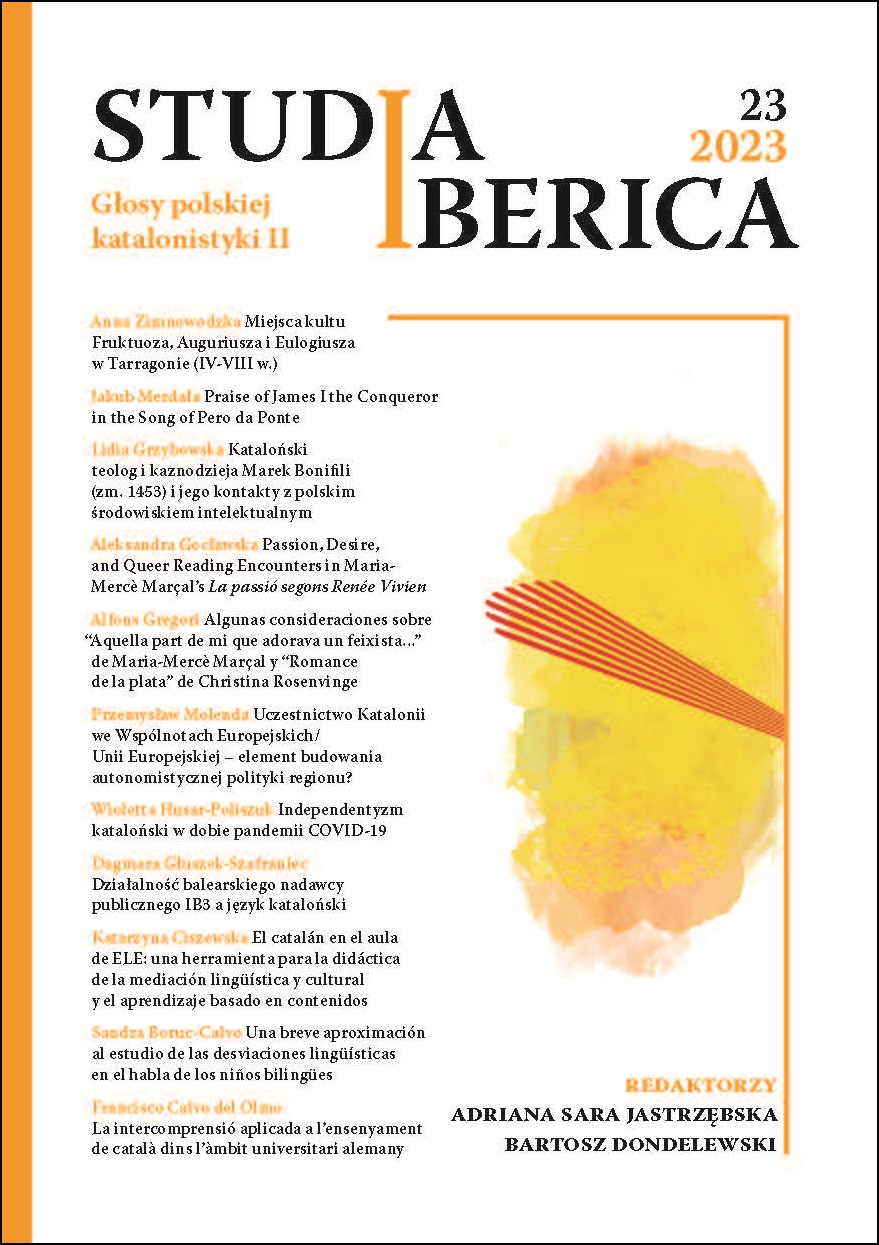Confrontarse con el legado paterno: algunas consideraciones sobre “Aquella part de mi que adorava un feixista…” de Maria-Mercè Marçal y “Romance de la plata” de Christina Rosenvinge
Confronting with her Father’s Legacy: Several Considerations on “Aquella part de mi que adorava un feixista...”, by Maria-Mercè Marçal,and “Romance de la plata”, by Christina Rosenvinge
Author(s): Alfons GregoriSubject(s): Literary Texts, Music, Poetry, Theory of Literature
Published by: KSIĘGARNIA AKADEMICKA Sp. z o.o.
Keywords: father’s death; Maria-Mercè Marçal; Christina Rosenvinge; contemporary Catalan poetry; contemporary Spanish popular music; confessional lyric; identity; object relations theory; authoritarianism
Summary/Abstract: The aim of this article is to analyse two texts belonging to confessional lyric: on the one hand, the song “Romance de la plata” from the album Un hombre rubio (2018) by Christina Rosenvinge, also collected as a poem in Debut (2019); on the other, an untitled poem by Maria-Mercè Marçal, whose first verse is “Aquella part de mi que adorava un feixista…,” present in the “Daddy” section of Desglaç (1989). I will focus on the motif of the father’s death and, in relation to this, on the claim to address past facts when it is too late to do so in person, having been the father fictionally projected as an authoritarian person and even a sympathizer of Francoism. Both texts demonstrate the ability of lyrical subjects – incarnated generically – to get involved in dialogue and negotiate both separations and connections with the Other, which in this case is the father figure. This involvement allows them to understand certain parental aspects without being subordinated to the authority or the seduction that they may have felt in earlier times. Thus, the sense of fictionalized female identity consists of a more diffuse idea of the limits of the self, assumed in relational and intersubjective terms. Finally, in “Romance de la plata” and its paratexts, Rosenvinge makes her own image prevail, while in “Aquella part de mi que adorava un feixista…” Marçal represents the deceased father through a plurality of images, escaping from his domain when he turns the lyrical subject and himself into children.
Journal: Studia Iberystyczne
- Issue Year: 2023
- Issue No: 23
- Page Range: 117-142
- Page Count: 26
- Language: Spanish

